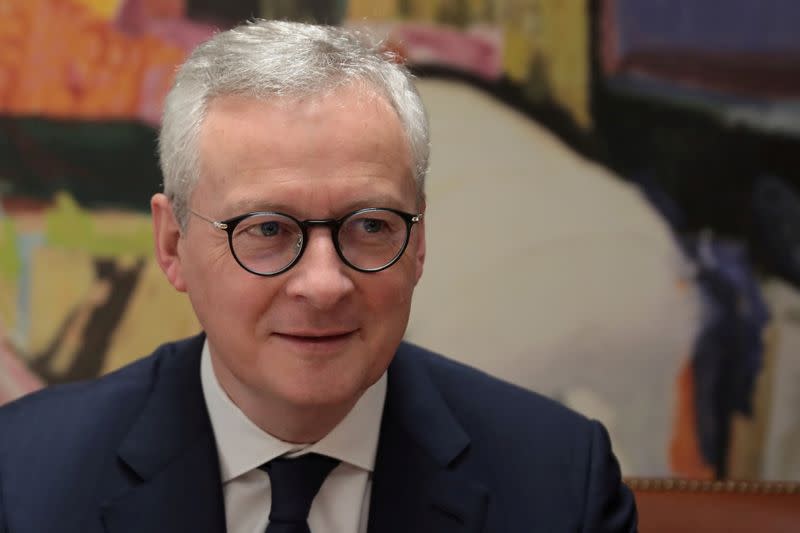Euro zone to consider credit line from bailout fund to fight coronavirus
By Jan Strupczewski
BRUSSELS (Reuters) - Euro zone ministers will discuss on Tuesday the possibility of governments applying for a credit line from the bloc's bailout fund to fight the coronavirus crisis, a move that would also pave the way for unlimited ECB bond purchases if needed.
Finance ministers and the European Central Bank have a teleconference at 1730 GMT but officials cautioned it was unclear if decisions could be taken now or if they would require the input of EU leaders who hold talks on Thursday.
Euro zone officials are worried that as the pandemic spreads and the euro zone sinks into a deep recession this year, financial markets could start demanding a high price for lending to governments, putting some of the most highly indebted countries like Italy under a lot of strain.
The idea under consideration is therefore that either all, or most, euro zone countries would apply for a precautionary stand-by credit called the Enhanced Conditions Credit Line (ECCL) from the European Stability Mechanism (ESM), the bailout fund, which has an unused lending capacity of 410 billion euros (379 billion pounds).
Governments would not draw on the ESM credit, but hold it in reserve to keep sovereign bond yields at manageable levels when they finance themselves on the market, because investors would know governments have a cheap financing alternative.
Crucially, an ECCL would open the way for the European Central Bank to step in with unlimited bond purchases, if it deemed this necessary. The ECB is allowed to do so for the bonds of any country with such a credit line, under its Outright Monetary Transactions (OMT) programme created in 2012.
EURO ZONE FAULT LINES
One of the difficulties in agreeing on the standby credit option on Tuesday is the conditions attached to it - any country applying would face a debt sustainability analysis by the European Commission.
Italy, which has a public debt of 137% of GDP that is only likely to grow given the country is likely to get into a recession this year, is unhappy about EU institutions scrutinising its debt.
The ECCL would also have to entail other conditions, some of which could be politically problematic. To make them more palatable, officials say they could be tightly focussed on issues relating to the epidemic, rather than general macroeconomic problems, and introduced gradually or with a delay.
Yet, Italy, Greece and Spain insist the credit line from the ESM should be without any conditions, while Germany, Finland, the Netherlands or Austria, say money cannot be lent with no strings attached.
"I wouldn't hold my breath," one senior euro zone official said of the likelihood of a decision being taken on Tuesday. "Discussions are ongoing but the usual suspects (southern and northern euro zone countries) are not aligned yet on the best way forward."
Officials also note that the urgency of a decision has been diminished by the ECB's own coronavirus emergency bond-buying programme worth 750 billion euros and the fact that all euro zone governments can still borrow very cheaply on the market.
(Reporting by Jan Strupczewski; Editing by Pravin Char)

 Yahoo Finance
Yahoo Finance 

